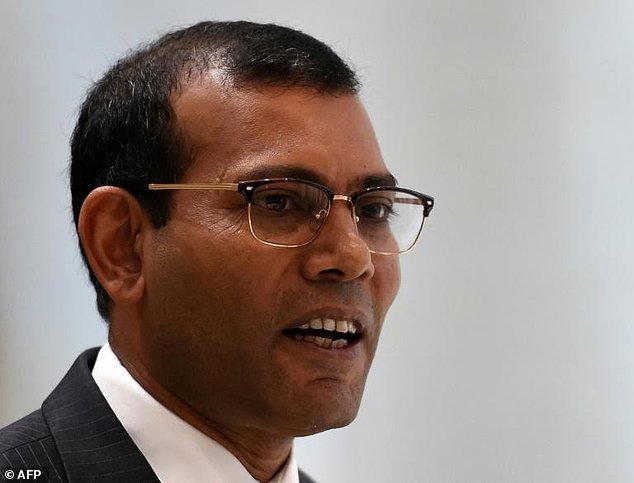27 March 2017
Exiled former leader of Maldives, Mohamed Nasheed has forged an alliance with former president Maumoon Abdul Gayoom, a half-brother of Yameen, the president. Jumhoory Party (Gasim Ibrahim) and Adhaalath Party (Sheikh Imran Abdulla) are also joining Nasheed to oust the present government.
The Maldives constitution prevents Nasheed from being a candidate because of his 2015 criminal conviction. But if he can secure enough votes to control of parliament, he will be able to overturn the law under which he was convicted, allowing him to take control.
Nasheed will test his strength with a no confidence motion against the Speaker of the parliament. There are 85 members of parliament. The Speaker and jailed lawmaker Ahmed Mahloof cannot vote. The deputy speaker Moosa Manik, who will preside the debate, also cannot vote unless there is a tie. Therefore, there are 82 members eligible to vote.
Yameen has 42 votes and Naheed’s coalition has only 34 votes. If all members turn out to vote, the government can easily defeat the no confidence motion. Both the government and the opposition do not consider the no confidence motion as crucial. But it could pave the way for an impeachment of the president. The scenario could change if some members of the ruling Progressive Party abandon Yameen to form a new majority. Gayoom’s son MP Faris Maumoon will vote for the motion. Mohamed Waheed Ibrahim, Mohamed Musthafa, and Mohamed Ameeth may vote for the motion. If these 4 votes switch sides, then there will be a tie.
PPM council members unanimously voted to expel Maumoon from the PPM party during an emergency council meeting held on Sunday. It was chaired by President Abdulla Yameen Abdul Gayoom.
Maumoon’s son, State Minister of the President’s Office, Ghassan Maumoon, abstained from voting. However, former president Maumoon refused to recognise the council’s decision, which he said in a tweet Sunday as having “no legal standing.”
Today the parliament met at 1.30 PM Maldives time. The majority leader Ahmed Nihan Hussain Manik proposed an individual roll-call vote. Forty-five lawmakers voted in favour for the roll call vote. The protests by the opposition prompted the deputy speaker to delay the vote by nearly an hour. Angry protests resulted in the naming of 13 opposition lawmakers. The named lawmakers were removed by the parliamentary security officers. After removing the named lawmakers, the censure motion was put to the roll-call vote. The remaining opposition MPs walked out and the motion was defeated comfortably with 48 government members voting against the motion.
Maldives: Exiled leader signs pact with former president.














